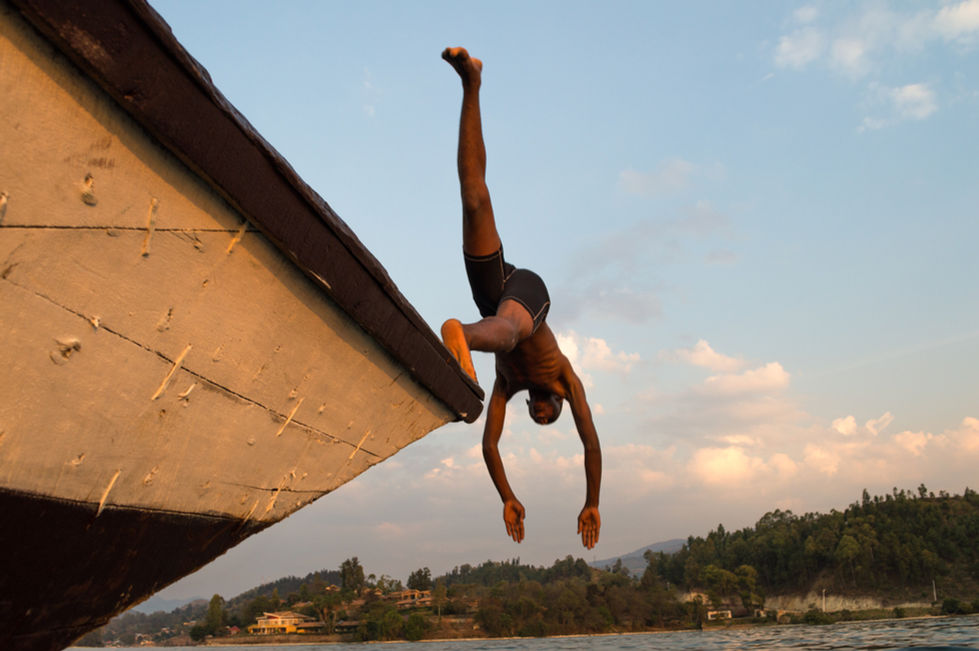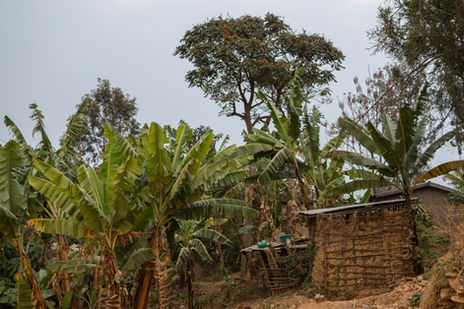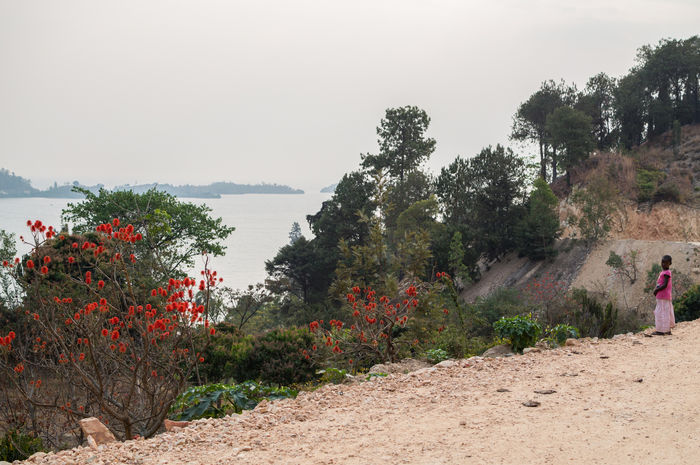Somebody had said something about deadly explosions or eruptions, and I wasn’t looking for any of that per se. Least of all in a lake. I just wanted to get out of Kigali for a while. Not because I didn’t like it, but because I did. A little too much for my liking. Its comforts and niceties had lulled me. But where to go? The country was small but had much. The gorillas? Hard no. The Rwandan government had just hiked up prices for gorilla trekking to more than twice of what it cost in neighboring DR Congo and Uganda, where I was headed next. And while I like a good conservational initiative as much as anyone, $ 1,500 USD for one hour with the gorillas seemed laughable. I mean gorillas are gorillas, but elephants are elephants, whale sharks are whale sharks, and whathaveyous are whathaveyous, and you get to see those for free in other places if you’re lucky or for 20 bucks if you’re in a rush. So, the lake then. But deadly eruptions? This called for the kind of reading up I usually forego before I go.
"Or maybe it is the ghastly thought of dying so unconventionally and inescapably – through asphyxiation by lake – that makes it hard to conceive why so many live there voluntarily."
It turned out that Lake Kivu is member of an exclusive club of only three lakes worldwide (as far as anyone knows) that undergo so called “limnic eruptions” or “lake overturns” and that those are a lot less cute than they sound. They happen when large amounts of CO2, bottled up in the deepest depths of these bodies of water, get released in sudden bursts triggered by natural events in the vicinity. Lake Kivu’s Cameroonian cousins Lake Monoun and Lake Nyos gave demonstrations in 1984 and 1986 respectively, killing thousands of people, livestock, and wildlife through asphyxiation. The subsequent installation of degassing pipes at both lakes is supposed to keep limnic eruptions from reoccurring. But the implementation of a similar project is considered too costly for Lake Kivu, where geological evidence of mass extinctions suggests that such overturning events happen quite frequently – in Earth terms – at roughly millennial intervals. And Lake Kivu is big. You could put several thousand Nyoses in there. And millions live in the area, not thousands. Well, who was I to not visit this explosive watery anomaly for a couple of days, when millions spend entire lives there?
"Fueled by global warming, extreme weather events increase in frequency and intensity wherever there is weather, so catastrophe is everyone's neighbor now."
Upon my arrival in Kibuye, I found a placid and beautiful Lake Kivu and some time to ponder the deliberations or non-deliberations that lead people to move in next to a disaster waiting to happen. Lake Kivu is an obvious candidate to raise this question as it combines a rather short one-thousand-year disaster-cycle with millions of potential victims, rendering an epic catastrophe almost inevitable. Or maybe it is the ghastly thought of dying so unconventionally and inescapably – through asphyxiation by lake – that makes it hard to conceive why so many live there voluntarily. After all, people put up with worse odds in places many of us would die to live in: like in the Caribbean, where hurricanes cause annual mayhem, or in California, where the state-wide average risk of a 6.7+ magnitude earthquake within the next 30 years is >99%.
Fueled by global warming, extreme weather events increase in frequency and intensity wherever there is weather, so catastrophe is everyone's neighbor now. Live near a forest? FIRE! Live near a river? FLOOD! Live in a city? HEAT WAVE! AIR POLLUTION! MENTAL ILLNESS!























